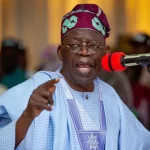In a country overflowing with energy assets, Nigeria remains on the cusp of an extraordinary excursion — one that could move it higher than ever of enhancement and provincial impact.
With huge stores of oil and gas, notwithstanding tremendous wellsprings of hydro energy, Nigeria is lavishly enriched with the necessary resources to send out power to the entire West African sub area in this way developing the economy, further differentiating the economy and expanding its impact.
Moreover, the country harbors an undiscovered sun powered energy capability of 5,000 trillion kilowatt-hours (KWh) showing a future where power isn’t simply a nearby extravagance yet an exportable ware that makes unexpected positions, extra duty income and local impact.
The Vision of Energy Overflow
Nigeria’s energy assets offer a heap of chances for power age. At the point when we consider the plenty of fuel sources available to its — oil, gas, hydro and sun oriented power, the vision of a country where power is generally open and exportable to adjoining nations ought to be vital.
Such a dream is feasible, repeating the examples of overcoming adversity of energy-trading forces to be reckoned with like Germany and Russia.
This article investigates the undiscovered possibility of force trades by Nigeria and the numerous features of this change — from the financial and territorial benefits to the hindrances that substitute its direction.
Verifiable Point of view: A Different Past
Nigeria’s set of experiences features a broadened monetary scene. In the mid 1900s, the country depended on farming and mining to help the economy.
Horticulture, specifically, assumed an essential part, contributing a normal of 57.0% to Gross domestic product and creating 64.5% of commodity profit.
The nation was a huge exporter of a great many rural items, including groundnut, cotton, cocoa, palm oil, lumber, stows away, and skins.
These commodities powered the homegrown economy as well as different assembling businesses both at home and abroad.
Notwithstanding farming, enterprises like the coal area, with a limit of 24,511 metric tons, assumed a significant part in propelling the country’s advancement.
Be that as it may, the revelation of oil during the 1950s and its rising concentration during the 1970s step by step smothered the product of different items or wares.
Today, oil accounts for over 79.37 percent of Nigeria’s total exports. While this shift has brought substantial gains to the nation, it has also exposed the perils of relying on a single, volatile commodity.
The Need for Diversification
To mitigate the risks associated with oil dependency and create a more stable economic base, Nigeria must diversify its export portfolio.
One of the paths to achieving this diversification lies in the realm of energy, particularly power generation. The nation’s abundant energy resources, including coal, oil & gas reserves, peat, hydroelectricity, solar, and wind, provide an exciting opportunity to not only meet domestic energy needs but also to export electricity to neighboring countries.
As the 9th largest gas reserve holder in the world, it’s energy resources are more than adequate to meet the nation’s own demands and contribute to the energy landscape of West Africa.
The Market for Energy Exports in West Africa
The West African region is home to a population of 423 million with a GDP of US$760,548M.
The cost of infrastructure for ensuring steady power supply is prohibitively high for the region, where the annual GDP of some countries is less than US$3 million.
For these nations, importing electricity from countries with surplus electricity is a cost-effective solution. Nigeria, with its vast energy resources and significant export capacity, is uniquely positioned to electrify the entire Western African region.
The electricity demand of a few states in the region, such as Senegal (1,350 MW), Benin (500 MW), Ghana (425 MW), Liberia (300 MW), Guinea (2,373 MW), and Guinea-Bissau (63 MW), indicate the electricity demand, which Nigeria can potentially fulfill.
Benefits of Energy Export – Russia as a Case Study
Russia serves as an exemplary case study for the advantages of energy exports. Russia leverages a diverse energy mix, of natural gas, oil, coal, nuclear, and hydropower, to meet domestic needs and actively engage in energy trade with neighboring countries and regions.
In 2021, Russia supplied 40% of Europe’s gas needs and exported electricity to neighboring countries. The revenue generated from these exports significantly impacts the nation’s economic stability and development.
It funds infrastructure projects, social programs, and technological advancements, fortifying Russia’s economy and regional influence.
Russia also uses energy exports as a diplomatic tool to influence the politics and policies of neighboring countries.
Additionally, Russia’s energy exports bolster its internal energy security. By prioritizing the provision of electricity to neighboring nations, Russia is driven to expand its investments in the power industry.
This heightened investment enhances local distribution efficiency, consequently mitigating the potential risks of energy shortages or interruptions.
Nigeria stands to enjoy these benefits with electricity becoming a main export product.
Roadblocks to Nigeria’s Expanding Power Exports
While Nigeria has the potential to become a major electricity exporter in West Africa, several challenges impede the realization of this potential.
The country is part of the West African Power Pool (WAPP), an initiative designed to develop power infrastructure to serve the energy needs of member states.
Currently, Nigeria supplies power to Niger, Togo, and Benin, but expanding this coverage to more countries faces significant hurdles:
Absence of Infrastructure: Nigeria’s inadequate power infrastructure within its own borders hampers its ability to expand exports to more countries. One potential solution is to encourage private investments in power infrastructure to manage the financial burden that comes with funding infrastructure like transmission lines to neighboring countries.
Policy and Regulatory Framework: Supportive regulatory and policy frameworks, such as tax breaks, reduced import taxes on machinery, and streamlined regulatory policies among countries, are essential to motivate private investment in the power sector.
Quality Manpower: New skills relating to cross-border electricity trading and network management will need to be learned.
Effective Contracts: Compelling agreements with neighboring nations are vital to ensure secure energy trade with these countries. The contractual framework must be both robust and efficient, assuring payments, among other factors, in order to attract private investment.
A Nigeria Where Power Exports Are Expanded
The vision of charting economic growth through the exporting of electricity by Nigeria is not merely a strategic opportunity; it is a visionary path to a brighter and more sustainable economic future.
Expanding electricity exports in Nigeria offers several significant advantages; this move further diversifies the economy and provides a more dependable and predictable income source when compared to oil, due to the long-term contracts involved.
Moreover, these long-term contracts guarantee a steady inflow of foreign exchange earnings. These foreign exchange reserves can be employed to stabilize the national currency, support the import of essential goods, and service foreign debt, thus contributing to macroeconomic stability.
The development of the energy sector also has the potential to create a substantial number of jobs, promoting economic growth and addressing unemployment challenges.
As Nigeria rests on the largest gas reserves in Africa, efforts should be made to realize its potential of becoming a pivotal player in the global energy market and a driver for change in West Africa.






